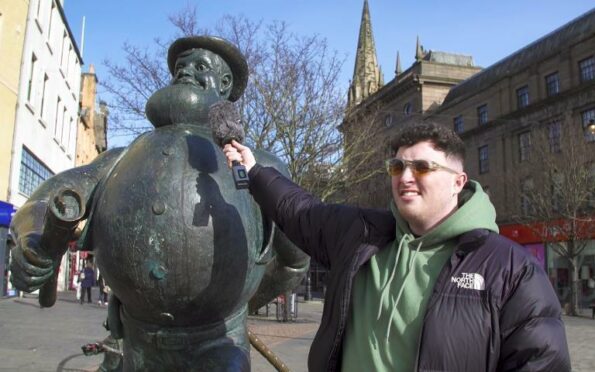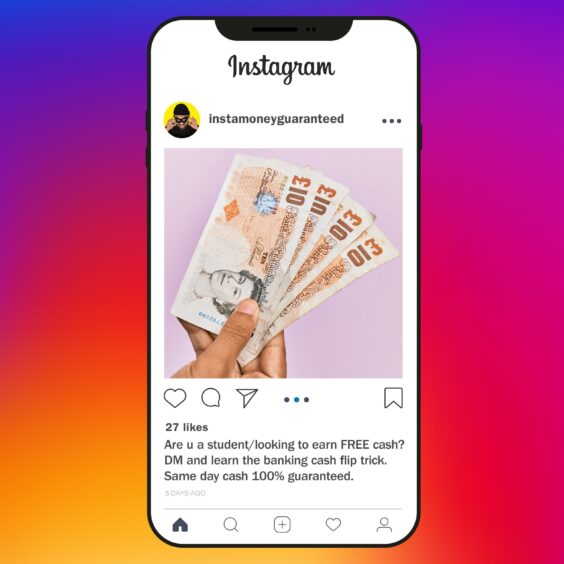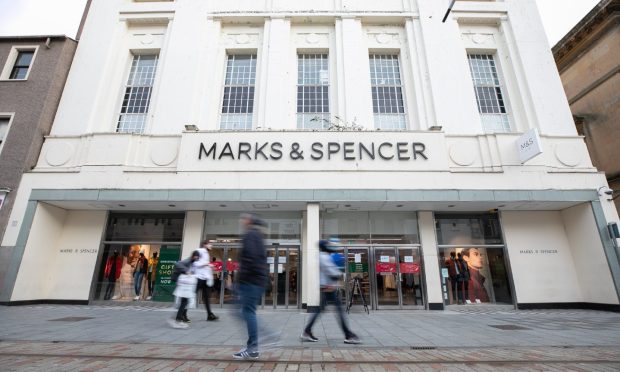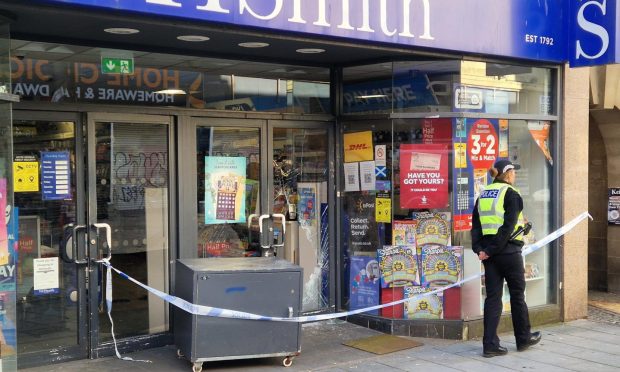Comedian Paul Black has been filmed offering Dundonians thousands of pounds – in a video to raise awareness of money muling.
The Scots funnyman, who has risen to fame with his TikTok videos, took to the city streets to quiz locals on their awareness of the scam.
He offered one group a profit of £2,500 for letting him deposit £40,000 in their bank account.
The video from the Royal Bank of Scotland aims to raise awareness of money muling, a cash laundering scam that could land those who fall victim with a lengthy prison sentence.
Anyone who refused to take Paul‘s offer was paid £100, while the comedian joked with others who said they would take the money.
One woman who refused explained she simply “doesn’t just trust a man off the street”.
What is money muling?
Police say young people in particular are commonly targeted in money mule scams, with criminals using social media platforms like Instagram and TikTok to promise easy money.
Money mules, often unwittingly, help to launder money from criminal activities.
They will receive money from a third party before transferring it on or withdrawing the cash to pass to someone else.
In return, they will be promised a percentage of the total amount given to them.
In 2019, Sky reported that victims of the scam can be as young as 14.
Europol says about 90% of money mule transactions are linked to cyber crime, with the cash deposited into victims’ accounts often linked to online crimes like phishing, holiday fraud and romance scams.
Advice from the crime agency says: “Even if money mules are not directly involved in the crimes that generate the money, they are accomplices as they launder the proceeds of such crimes.
“Simply put, money mules help criminal syndicates to remain anonymous while moving funds around the world.”
In the UK, money mules can have their bank account closed and be banned from opening another for six years.
They can also face a prison sentence of up to 14 years.
How Fife woman was conned out of £150k in ‘Tinder Swindler’ scam











